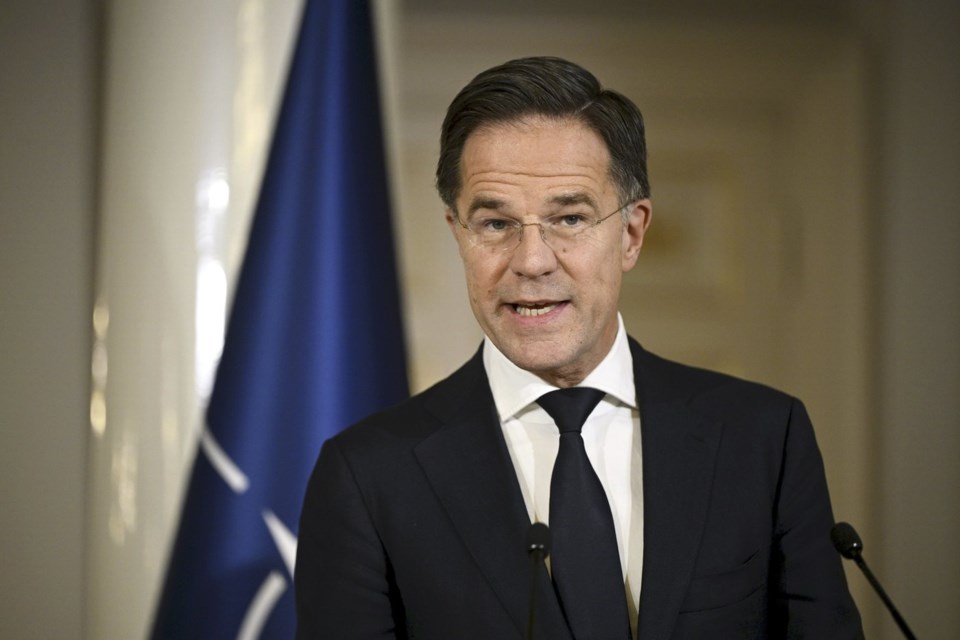BRUSSELS (AP) — NATO Secretary-General Mark Rutte announced Tuesday that the alliance is launching a new mission to protect undersea cables in the Baltic Sea region.
Rutte said at a meeting in Helsinki with the leaders of NATO countries located on the Baltic Sea that the effort would be dubbed Baltic Sentry.
“It will involve a range of assets, including frigates and maritime patrol aircraft, among others, and will enhance our vigilance in the Baltic,” Rutte told reporters. He also said that a small fleet of naval drones will be deployed “to provide enhanced surveillance and deterrence.”
The meeting follows a string of incidents in the Baltic that have heightened concerns about possible Russian activities in the region.
Even as Rutte was meeting in Helsinki with the leaders of eight Baltic nations, there were reports on the Polish state broadcaster TVP that a ship belonging to Russia's "shadow fleet” was seen circling a natural gas pipeline that runs from Norway to Poland.
Finland President Alexander Stubb said the issue had been discussed at the meeting without giving details.
The meeting included leaders from Finland, Germany, Poland, Denmark, Sweden, Latvia, Lithuania and Estonia.
Announcing the new operation, Rutte noted that more than 95% of internet traffic is secured via undersea cables, and 1.3 million kilometers (808,000 miles) of cables guarantee an estimated $10 trillion worth of financial transactions every day.
“Across the alliance, we have seen elements of a campaign to destabilize our societies through cyberattacks, assassination attempts and sabotage, including possible sabotage of undersea cables in the Baltic Sea,” he said.
Rutte said NATO’s adversaries must know that the alliance will not accept attacks on its critical infrastructure, underlining that “we will do everything in our power to make sure that we fight back, that we are able to see what is happening and then take the next steps to make sure that that doesn’t happen again.”
Pressed for details about what the operation might involve, Rutte declined to provide ship numbers, saying that the figure could vary week to week, and “we don’t want to make the enemy, any wiser than he or she is already.”
“We will make use of the full range of possibilities we as an alliance have,” he said, including “remotely operated vehicles” and drones.
Chancellor Olaf Scholz said in separate remarks to reporters that Germany will participate in the Baltic Sentry mission. Asked whether that means Germany will contribute ships or surveillance planes and whether he made a specific offer, he replied: “We will participate with everything we have in the way of naval capabilities; that will vary, as far as the concrete possibilities of deployment are concerned.”
___
Gera reported from Warsaw, Poland. Geir Moulson in Berlin contributed reporting.
Lorne Cook And Vanessa Gera, The Associated Press

